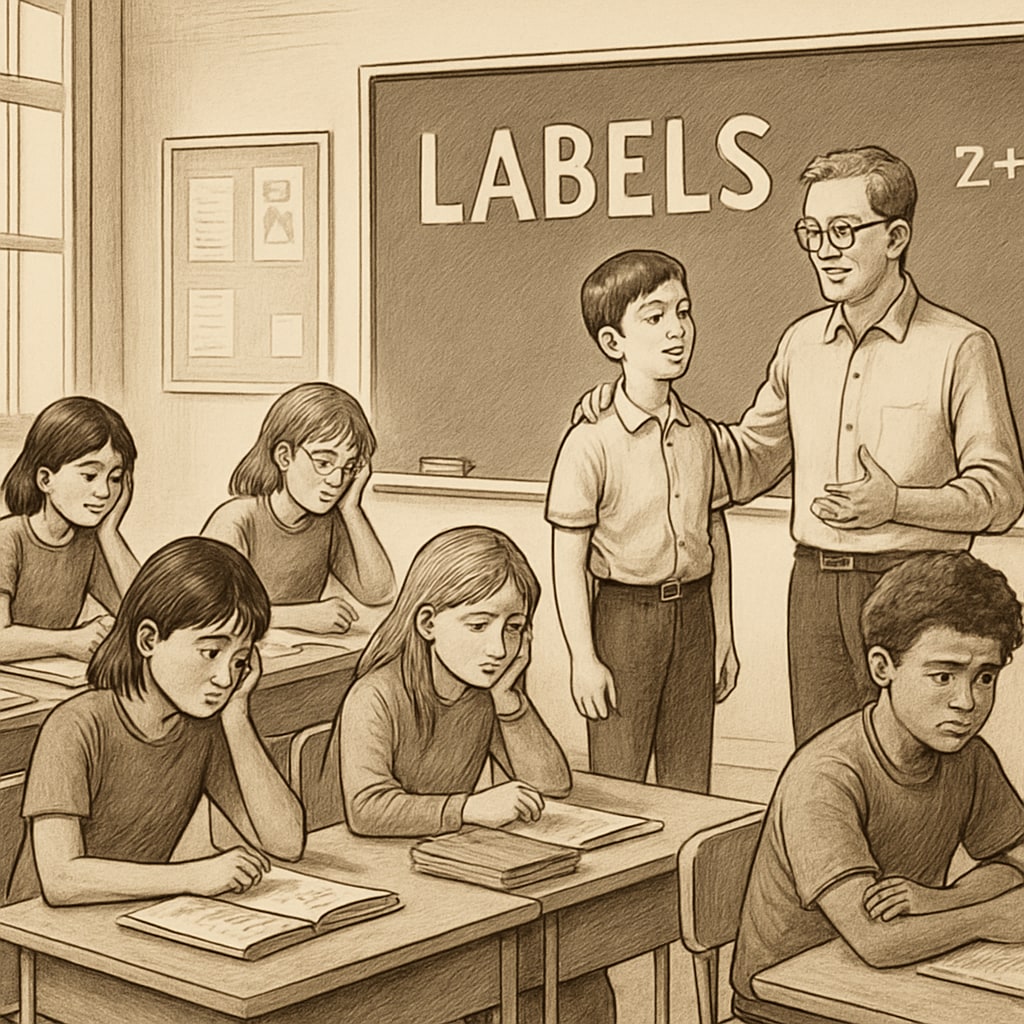In the K12 education system, the term “genius” is often thrown around to describe students who show exceptional academic or creative abilities. While this label may seem like a compliment, it often carries unintended consequences. The “genius” label not only places immense psychological pressure on the labeled students but also creates a sense of inadequacy and self-doubt among their peers. This article explores the negative impact of educational labels and argues for a more inclusive approach that prioritizes individual growth over categorization.
The Pressure of Being Labeled as a “Genius”
For students who are labeled as “geniuses,” the expectations can be overwhelming. The label sets a high bar that they are expected to meet consistently, leaving little room for mistakes or setbacks. As a result, these students may experience significant psychological pressure, including anxiety and fear of failure.
Moreover, the “genius” label can limit a child’s willingness to take risks or explore new areas. For example, they may shy away from subjects or activities where they are not immediately successful, fearing that failure will tarnish their reputation. Over time, this can stifle creativity and discourage well-rounded development.

The Impact on Peers: Fostering Inequality and Self-Doubt
The harm of the “genius” label is not limited to those who receive it. For other students, these labels can create a sense of inferiority and self-doubt. When certain children are singled out as “geniuses,” it can send the message that intelligence and potential are fixed traits, rather than qualities that can be developed through effort and perseverance.
This fixed mindset can discourage students from trying their best, especially if they believe they will never measure up to their “genius” peers. Additionally, the emphasis on labeling undermines the idea that all students have unique strengths and talents worth cultivating.

Moving Beyond Labels: A Focus on Growth
Rather than labeling students as “geniuses” or otherwise, educators should focus on fostering a growth mindset, a concept popularized by psychologist Carol Dweck. A growth mindset emphasizes that intelligence and abilities can be developed through effort, practice, and perseverance.
Here are some strategies to move beyond educational labels:
- Encourage effort over innate ability: Praise students for their hard work, problem-solving skills, and persistence, rather than labeling them as inherently talented.
- Celebrate diverse strengths: Recognize and value different types of intelligence, such as creativity, emotional intelligence, and practical skills.
- Create an inclusive environment: Foster a classroom culture that supports collaboration and mutual respect, rather than competition.
By shifting the focus from labels to individual growth, educators can help all students reach their full potential without the burden of unfair expectations or comparisons.
Conclusion: Rethinking the Role of Labels in Education
The “genius” label may seem harmless or even encouraging, but its long-term consequences can be damaging for both the labeled students and their peers. Instead of categorizing children, educators should aim to create an environment that nurtures every student’s unique abilities and promotes a growth mindset. By doing so, we can ensure that education becomes a journey of discovery and self-improvement, free from the constraints of limiting labels.
Readability guidance: This article uses short paragraphs, clear subheadings, and lists to maintain readability. It avoids overuse of passive voice and incorporates transitional words for smooth flow.


